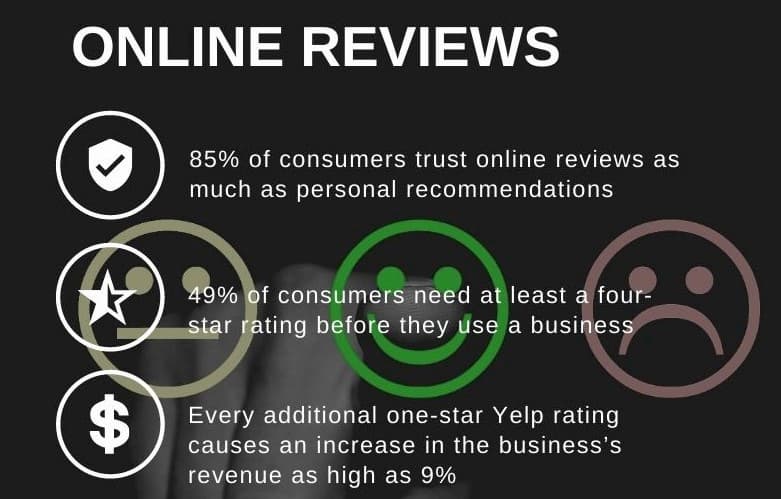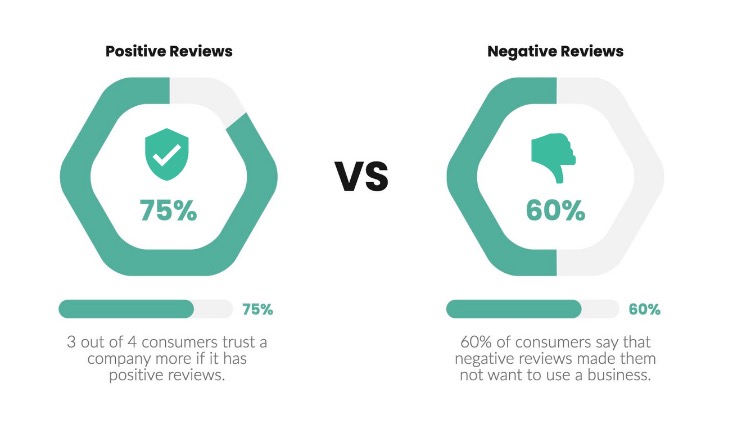An In-Depth Guide to Local Reputation Marketing In 2024
In the world of business, reputation is everything. And in today’s digital age, your online reputation can make or break your business. With the rise of social media, online reviews, and different search engines, potential customers can learn about your business before they even enter your store or visit your website. This is where local reputation marketing comes into play.
- Local reputation marketing involves managing and promoting the online reputation of a local business.
- 91% of consumers read online reviews before making a purchase decision, and 84% trust online reviews as much as personal recommendations.
- A negative online reputation can cause potential customer loss, while managing it effectively can attract more customers and build trust.
- Best practices for local reputation marketing include monitoring online reviews, responding to customer feedback, asking for reviews, showcasing positive reviews, optimizing Google My Business listing, using social media to build relationships, partnering with influencers, investing in local SEO, providing excellent customer service, and tracking progress.
- Tracking progress through analytics tools and adjusting strategies is crucial for success.
Local reputation marketing is the process of managing and promoting the online reputation of a local business. It includes monitoring online reviews, responding to customer feedback, and actively seeking positive reviews to showcase on your website and social media pages.
Why is local reputation marketing important?
Local reputation marketing continues to grow in importance year after year. A recent survey found that 91% of consumers read online reviews before making a purchase decision, and 84% of people trust online reviews as much as personal recommendations. Your online reputation can have a significant impact on your business.
If your company has a negative reputation online, you could be losing out on potential customers. On the other hand, if you manage and market your local reputation effectively, you can attract more customers and build trust with your target audience. By showcasing positive reviews and responding to customer feedback, you can establish yourself as a trustworthy and reliable business in your local community.
Best practices for local reputation marketing
Now that you understand the importance of local reputation marketing let’s explore some best practices to help you manage and market your reputation in 2023.
1. Monitor your online reviews
The first step in managing your local reputation is to monitor your online reviews. Set up alerts for your business on popular review sites like Yelp, Google, and Facebook so that you’re notified whenever a new review is posted. This will allow you to respond quickly to negative reviews and thank customers for positive ones.
2. Respond to customer feedback
Responding to customer feedback is crucial for managing your local reputation. If a customer leaves a negative review, take the time to respond and address their concerns. Apologize for any mistakes and offer a solution to the problem. This will show potential customers that you value their feedback and are committed to providing excellent customer service.
It’s also important to respond to positive reviews. Thank customers for their feedback and tell them you appreciate their business. This will help build loyalty and encourage customers to leave more positive reviews in the future.
3. Ask for reviews
One of the best ways to improve your local reputation is to actively seek out positive reviews from satisfied customers. Consider sending follow-up emails or texts after a purchase asking customers to leave a review. You can also include links to your review profiles on your website and social media pages to make it easy for customers to leave feedback.
When asking for reviews, it’s important to be respectful of your customers’ time. Keep your requests short and sweet, and make it clear that you value their feedback.
4. Showcase positive reviews
Once you’ve collected some positive reviews, it’s important to showcase them on your website and social media pages. Consider creating a testimonial page to feature customer reviews and ratings on your website. You can also create social media posts featuring positive reviews to help build trust with your followers.
A testimonials page can also be helpful when trying to secure investments in your business. Potential investors will evaluate your products and services, among other things, and if you can share the positive experiences your customers have had with your brand, you can show investors that you’re a company worth doing business with.
When showcasing positive reviews, it’s important to be authentic. Don’t be afraid to highlight specific details or quotes from the review to give it more weight. You can also include photos or videos of your customers or products to add more credibility to the review.
5. Optimize your Google My Business listing
Your Google My Business listing is one of the most important tools for local reputation marketing. Ensure your listing is up-to-date with accurate business information, photos, and hours of operation. Encourage customers to leave reviews on your listing to help improve your local search rankings.
Here’s how to optimize your Google My Business listing:
- Use relevant keywords in your business description and category
- Add photos and videos to showcase your products or services
- Ensure your operation hours are correct.
6. Use social media to build relationships
Social media is a great tool for building customer relationships and improving your local reputation. Use social media to share updates about your business, showcase your products or services, and interact with customers. Respond to comments and messages promptly to show your followers that you value their feedback.
7. Partner with influencers
Influencer marketing is becoming increasingly popular in the digital age, and it can be a great way to improve your local reputation. Consider partnering with local influencers in your community to promote your business and reach a wider audience.
When choosing influencers to partner with, make sure they align with your brand values and target audience. Look for influencers who have a strong local following and engage with their followers regularly. You can also offer incentives like free products or services in exchange for a review or social media post.
8. Invest in local SEO
Investing in local SEO can help improve your local reputation by making it easier for potential customers to find your business online. This includes optimizing your website with local keywords, creating local content, and building local backlinks. Another idea is to use local directories and citation sites to improve your online visibility.
To improve your local SEO, use relevant keywords throughout your website and blog posts. Create location-specific landing pages to target customers in your local area and optimize your meta descriptions and title tags.
9. Provide excellent customer service
Providing excellent customer service is crucial for building a positive local reputation, and even more so in competitive industries. Make sure your employees are trained to provide top-notch customer service and encourage them to go above and beyond to satisfy customers’ needs.
Not only will this lead to more positive reviews and word-of-mouth referrals, but it can also help encourage repeat business and create a loyal customer base. For example, if your car dealership offered a memorable experience to a first-time car buyer, they are more likely to use your dealership to sell their car than they are to have a private sale.
One way to improve customer service is to use multiple avenues to communicate with customers, which can also benefit businesses. For example, local businesses can connect with customers directly via direct SMS messaging, which facilitates easier communication for the clinics and provides quick access to information for patients.
10. Track Your Progress
Finally, it’s important to track your progress. Use analytics tools to track your online reviews, social media engagement, and website traffic. This will allow you to see what’s working and what’s not so you can adjust your strategy accordingly.
To track your progress, set specific goals for your local reputation marketing efforts. Use A/B testing to compare different strategies and see what works best for your business. And don’t be afraid to adjust your strategy as needed to ensure that you’re meeting the needs of your customers and building a positive local reputation.
Conclusion
In 2023, local reputation marketing will be more important than ever. By actively managing and marketing your local reputation, you can attract more customers and establish yourself as a trustworthy and reliable business in your community. Use these best practices to improve your online reputation and grow your business in the digital age.


